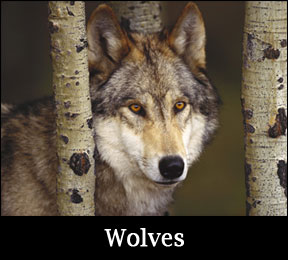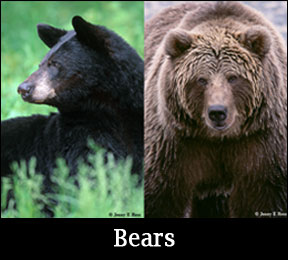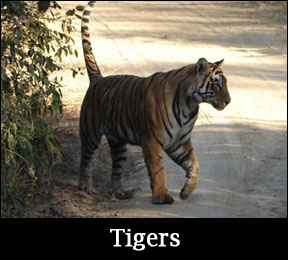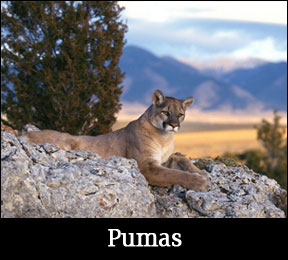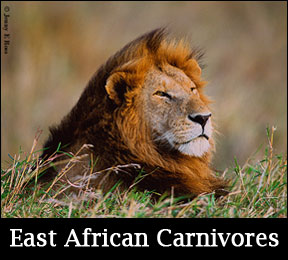
Vision, Values, and Goals
Our shared vision is to preserve nature for future generations of all life on Earth.
Hereafter Adrian writes on behalf of himself only as my associates, students, and colleagues mentioned on this webpages may not share my values in every particular.
Adrian Treves focuses on ecology, scientific integrity, endangered species laws and public trust principles, with fieldwork in agro-ecosystems where crops and domestic animals overlap carnivore habitat. After Adrian earned his PhD at Harvard University in 1997, he founded and still directs the Carnivore Coexistence Lab.
Worldview
My career and life goals are to preserve nature for future generations of all life on Earth.
I treat nature as held in trust for current and future generations of all life, with priority on preservation not on use.
I do not give priority to humans but rather equitable consideration of individual humans and individual animals as the situations and conditions demand. I believe animals should have legal standing in courts with constitutional public trust powers.
I believe youth, current adults, and future generations of humans have equal rights. (As a scientist with a visual disability, I have personally lived through injustice by the able. When I am not fighting for nature preservation, I support human rights and justice campaigns.)
I see democratic governments as empowered by the sovereign public to preserve nature and regulate its use as a permanent trust.
As a public scientist, I value the service to (a) the broadest public including future generations of all life, (b) good governance for fulfilling the duties of public trustees, and (c) the best available science following the principles of Open Science: transparency, independent review, strong inference, and reproducibility.
Should scientists advocate?
All scientists advocate for our science including the process, methods, interpretations, and communication of it, even if they don't realize they are doing it, each scientific communication we make is advocating for our science. It seems the activist part of that advocacy is what most scientists are actually shying away from - the idea of being vocal in advocacy for science. The other misconception might be the idea that ANY advocacy is biasing. But that myth has been debunked by several fields of scholarship proving that we scientists all bring our value system to bear on the questions we ask and don't ask, as much as the answers we emphasize and the strength of inference we apply. Therefore, subjectivity affects science and may create bias. The trick lies in reducing bias and making value judgments transparent. Beware of the scientists who do not make their value judgments transparent. To paraphrase Naomi Oreske, we should trust scientists in their area of specialization because they have devoted their lives to systematic observation, reproducible results, and even-handed scientific communication about their areas of expertise. Yet the best science is constantly sfited and winnowed by a diverse set of similarly trained scientists not the authority of one or a few no matter how experienced. Therefore. the public should ask if scientists have competing interests that might distort that training.
See the CCC wepage for Adrian’s CV and funding sources with potential financial and non-financial competing interests.
A note about advocacy and science
Sometimes scientists criticize each other for advocacy. All scientists advocate for our science including the process, methods, interpretations, and communication of it. Even if they don't realize they are doing it, each scientific communication we make is advocating for our science. It seems the activist part of that advocacy is what scientists most are actually shying away from - the idea of being vocal and out there in advocacy for science. The other misconception might be the idea that ANY advocacy is biasing. But that myth has been debunked by several fields of scholarship proving that we scientists all approach questions (and how we answer them) with some viewpoint that shapes the questions we ask and don't ask, as much as the answers we get and emphasize. So, subjectivity enters into science and may create bias. The trick lies in reducing bias and making it transparent if some remains. That trick is a work in progress for most (all?) scientists and we here have chosen transparency about our value judgments andor starting assumptions. See our transparent statement of value judgments here.. Beware of the scientists who do not make their value judgments transparent.
I see scientific evidence as the bedrock on which policy decisions should be made by all three branches of our constitutional democracy. Good decisions start with 'what do we know? and how certain are we about it?'. That's the bedrock. Then the ethical judgments enter the picture, reflecting our values and worldviews, to help us answer the question 'how should we behave toward others? And who are we and the others?'. This helps to answer why I engage with policy-makers in all three branches. The following is my current rebuttal to scientists who believe they are neutral and objective but others have an agenda because they advocate for democracy, ethics, or their evidence. I believe many scientists are fooling themselves and their listeners about the nature of objectivity. No one is neutral or perfectly objective – there is no perspective from nowhere, everyone asks questions that interest them and the answers we get to our questions depend on our values to some extent – but scientists are trained to be objective and place their own values as alternatives to other values, their answers as alternatives to other answers. That doesn't make us neutral but we are trained to be more objective than the average person, so at our best, we might overcome our own biases and support conclusions that our values seem to contradict.
Our offices at the University of Wisconsin–Madison occupies ancestral Ho-Chunk land, a place their nation has called Teejop (day-JOPE) since time immemorial. In an 1832 treaty, the Ho-Chunk were forced to cede this territory. Decades of ethnic cleansing followed when both the federal and state government repeatedly, but unsuccessfully, sought to forcibly remove the Ho-Chunk from Wisconsin. This history of colonization informs our shared future of collaboration and innovation.Today, UW–Madison respects the inherent sovereignty of the Ho-Chunk Nation, along with the eleven other First Nations of Wisconsin.
For quick summaries of the carnivores we work with, click on the names of carnivores below.
History: Adrian founded the Carnivore Coexistence Lab in April 2007.
Two species of large carnivores have gone extinct in recent times and most have suffered major population reductions. Loss of large carnivores disrupts ecosystems and depletes biodiversity, because of cascading influences on prey and smaller-bodied carnivores. The larger species of carnivores typically require vast areas to survive, thereby competing indirectly with people for space and resources. Direct competition is also apparent when carnivores prey on livestock or damage crops and when people retaliate by clearing habitat or killing carnivores. Human causes of mortality predominate in virtually all large carnivore populations.
Mainly, people retaliate against carnivores for real and perceived threats to property, safety, or hunted species. Thus, carnivore conservation has often depended on reducing human causes of mortality. Both private citizens and governments are implicated. Government-sponsored bounties, pest eradication campaigns, and trophy hunts extirpated carnivores across vast areas of many countries. Even in the last decade, private eradication efforts have occurred in many regions.
Large carnivores can be conserved within human-dominated areas, while also protecting people's livelihoods and safety. The solutions are never simple; indeed they can be maddeningly complex. But when we combine local knowledge with technical support and state-of-the-art research, we can balance the needs of people and wildlife.
The challenge of preserving nature in the face of climate change and the sixth mass extinction requires that current generations recognize their public duty to protect nature for future generations. It also requires that governments and public scientists account transparently in a sophisticated way for nature's assets as a trust for current and future generations not narrow interests. The constitutional and public trust frameworks that establish these duties are legal obligations as well as ethical and moral responsibilities. Since 2012, Dr. Adrian Treves has combined ecology and the law to understand the roles of legal, ethical and scientific duties in preserving nature for posterity. The Carnivore Coexistence Lab members are public scientists who strive to uphold these duties to the broadest public not narrow interests or donors. To do so, we transparently describe our value judgments as follows:
